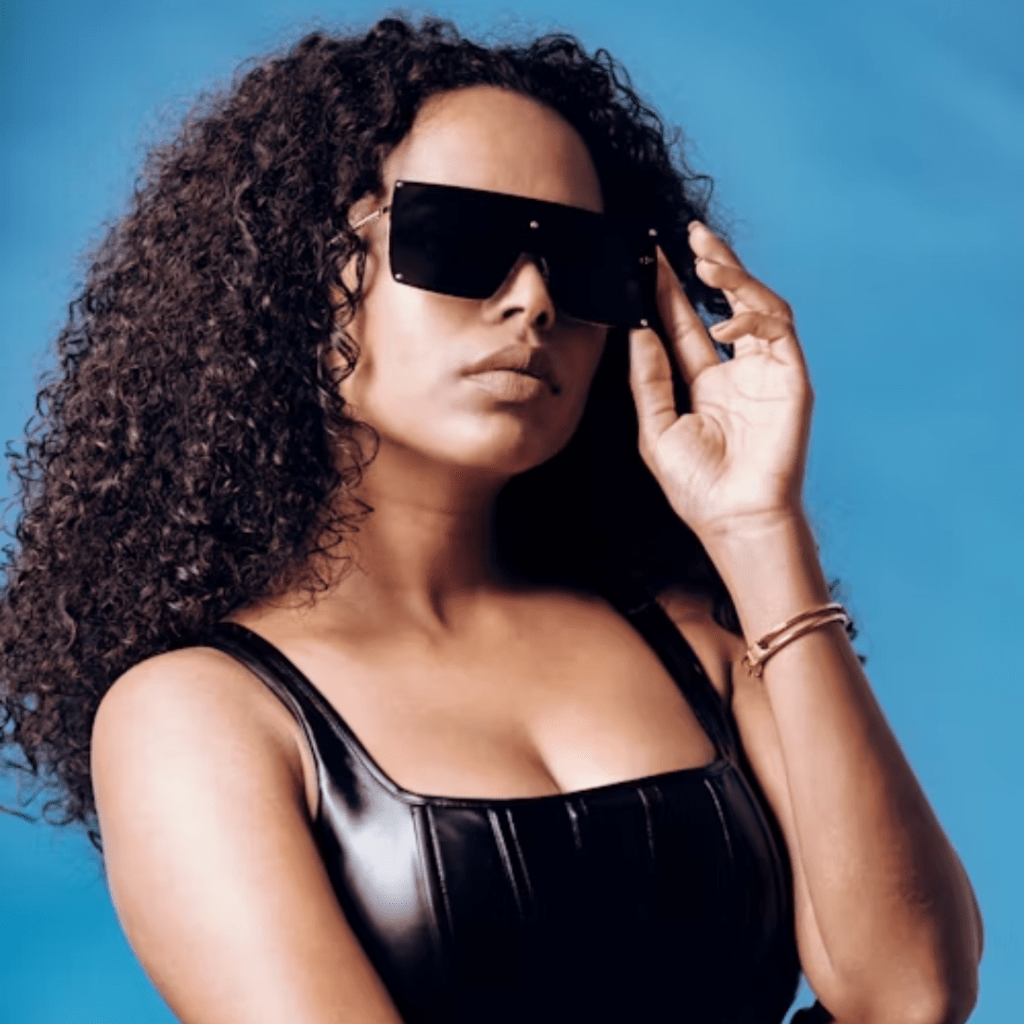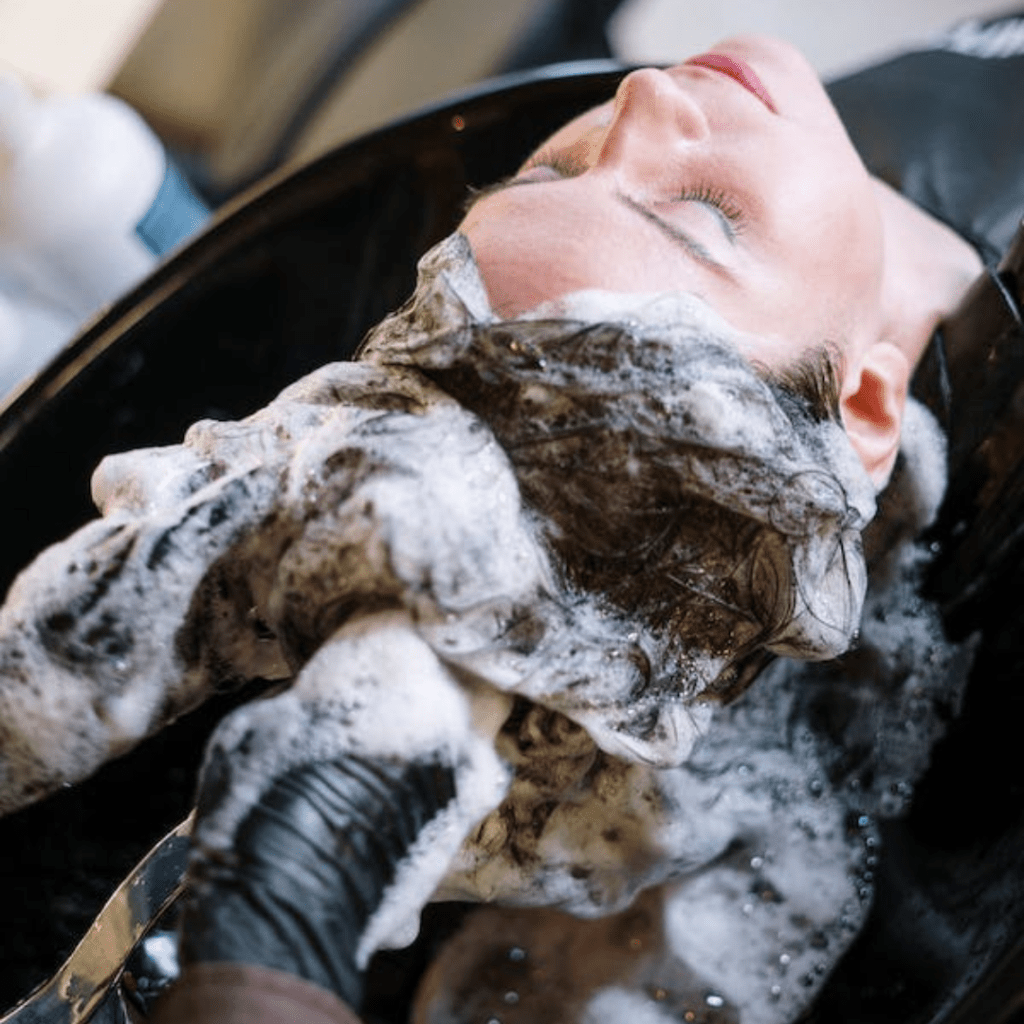Curly hair always comes first on the list when it comes to statement hair. This is one of the reasons why it is one of the most demanded hair textures these days. wearing kinky curly hair wigs or being blessed genetically with bouncy coils is a boon. But how to maintain it? We have your back because this blog is all about curly hair care with respect to their types.
Decoding Type 4
Type 4 of the curly hair types, according to the Andre Walker Hair Typing System, refers to coily or kinky hair. It is the most tightly curled hair type. Type 4 hair is characterized by its tight coils, which may form small or no discernible curl patterns. This hair type has a high density, meaning there are a lot of hair strands per square inch, and it tends to have a drier texture compared to other hair types.
4A Hair

Type 4A hair is a specific type of curly hair that has well-defined, tightly coiled curls with an “S” pattern. Type 4A hair forms tight, springy curls that have a clear “S” shape. The curls are usually smaller in diameter compared to other hair types, but they have a more visible curl definition.
Type 4A hair tends to have a fine texture. This type of hair also has a high shrinkage factor, which means that when the hair dries, it can appear significantly shorter than its actual length. Type 4A hair has a tendency to be dry and may require extra moisture and hydration. It can be worn in its natural curly state or can be stretched and manipulated for different looks.
Special Hair Care For 4 C Curly Hair: Proper hair care for Type 4A hair involves regular deep conditioning, moisturizing, and gentle handling to maintain its health and promote curl definition. Using products specifically formulated for curly hair and protective styling can also help preserve the integrity of the curls and minimize damage.
4B Hair

Type 4B hair is a specific type of curly hair that has a zigzag or “Z” shaped curl pattern. It is characterized by tightly coiled strands that form sharp angles rather than a clear “S” pattern. The curls are less defined compared to Type 4A hair, and the strands may have a crimped or wiry appearance. Type 4B hair typically has a coarse or wiry texture.
Type 4B hair has a high shrinkage factor. When it dries, it tends to shrink significantly in length, making it appear shorter than its actual length. It is important to use hydrating products and techniques to retain moisture in the hair and prevent dryness and breakage. It can be worn in its natural curly state or stretched and manipulated for different looks.
Special Hair Care For 4 C Curly Hair: Proper hair care for Type 4B hair involves regular deep conditioning, moisturizing, and gentle handling to maintain its health and promote moisture retention. Using products specifically formulated for curly hair and protective styling techniques can help preserve the curl pattern and minimize damage. Incorporating techniques like finger detangling and avoiding excessive heat can also help maintain the integrity of Type 4B curls.
4C Hair

Type 4C hair refers to a specific type of curly hair that consists of densely packed coils with minimal curl definition. The coils are tightly packed and may not have a clear curl pattern or visible ringlets. Type 4C hair typically has a coarse or wiry texture. The individual hair strands are densely packed together, giving it a high density and a voluminous appearance. The strands may feel thick and have a tight coil structure.
Type 4C hair has a significant amount of shrinkage. When it dries, it can shrink up to 75% or more of its actual length. Type 4C hair tends to have a dry texture and can be prone to moisture loss. It requires regular and effective moisture retention techniques. Things like deep conditioning, regular moisturizing, and sealing the hair to prevent dryness and breakage.
Special Hair Care For 4 C Curly Hair: Proper hair care for Type 4C hair involves regular deep conditioning, moisturizing, and sealing to maintain moisture and minimize dryness. Gentle handling, detangling with care, and avoiding excessive heat is also important for maintaining the health and integrity of Type 4C hair. Using products specifically formulated for curly and coily hair types can help enhance moisture retention and promote overall hair health.
Hair Care Tips for Type 4 Curly Hair

Here are some hair care tips specifically for Type 4 hair:
- Moisture, Moisture, Moisture: Type 4 hair tends to be dry, so keeping it well-moisturized is crucial. Use moisturizing shampoos and conditioners that provide hydration to your curls. Consider using leave-in conditioners or moisturizers that are specifically formulated for curly hair to help lock in moisture and minimize dryness.
- Deep Conditioning Treatments: Regular deep conditioning treatments are essential for Type 4 hair. Deep conditioners penetrate the hair shaft, providing intense hydration and nourishment. Use a deep conditioner at least once a week or as needed to restore moisture, improve elasticity, and promote healthy curls.
- Gentle Detangling: Type 4 hair is prone to tangling, so be gentle when detangling to avoid breakage. Start by using your fingers to gently separate any larger knots or tangles. Then, use a wide-toothed comb or a detangling brush to carefully remove knots, starting from the ends and working your way up. Detangle while your hair is wet and saturated with conditioner to minimize breakage.
- Protective Styles: Consider incorporating protective styles into your hair care routine. Protective styles like twist-outs, braid-outs, or bantu knots can help protect your hair from damage, reduce manipulation, and aid in retaining moisture. Ensure that your hair is properly moisturized and sealed before installing a protective style.
- Nighttime Routine: Develop a nighttime routine to preserve moisture and protect your hair while you sleep. Use a satin or silk pillowcase or wrap your hair in a satin or silk scarf or bonnet to prevent friction and moisture loss. Consider moisturizing and sealing your hair before bed to keep it hydrated overnight.
- Avoid Heat Damage: Excessive heat can cause damage and dryness to Type 4 hair. Minimize the use of heat-styling tools like flat irons, curling irons, and blow dryers. If you do use heat, apply a heat protectant spray before styling and use the lowest heat setting necessary.
Conclusion
Remember, every individual’s hair is unique, and it’s important to experiment and find what works best for your specific Type 4 hair. Consistency, patience, and understanding of your hair’s needs will help you develop a personalized hair care routine for healthy, beautiful curls. These tips will keep your curly hair bouncy as well as your extensions too.











